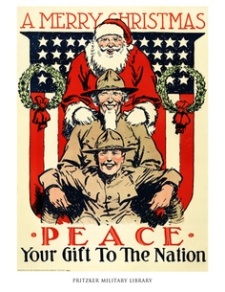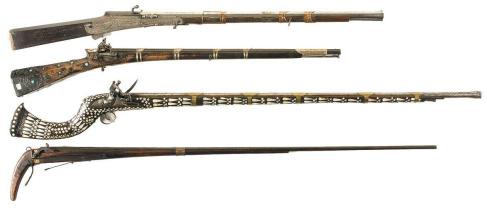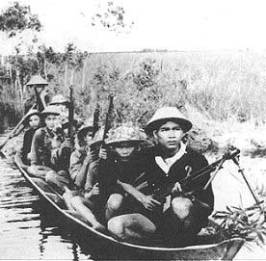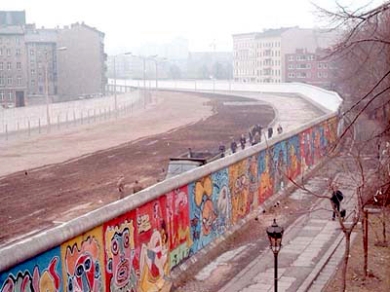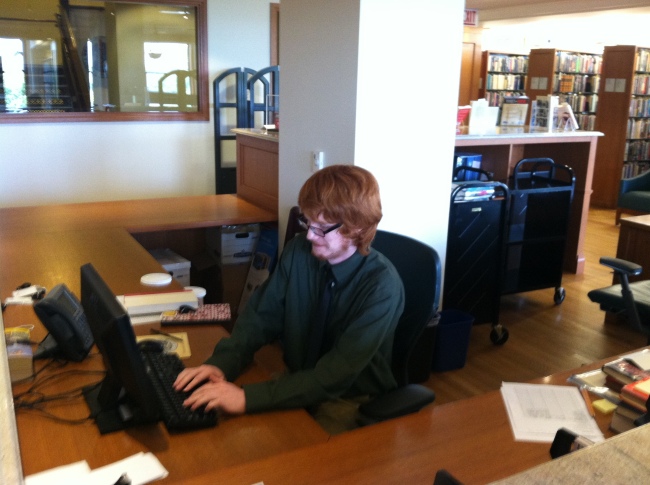I guess this marks the last entry to my blog concerning my internship at the Pritzker Military Library. I came in on a Wednesday this time (fancy that!), and through that got to see what the library is like on a not-Saturday. And let me tell ya, it was buzzing with activity! People walking around, patrons researching, employees getting things done, it was pretty wild compared to my lazy Saturday worktime. Truth be told, the quiet nature of the library is great on the weekends, but today’s session was just as great.
It’s a shame my internship has ended when it has, for Pritzker seems to be putting the last coats of varnish on their new website. It’s much more user-friendly, and once the transition is complete it will be an amazing addition. As such, my work today was concerning the new site, by going through another round of edits and beginning to retro-fit past Discovery Page information to fit the new Topics Page style. It focuses a lot more on the library’s holdings and how the different books connect to one another, meaning there’s a lot of work to be done in researching the books even deeper. I only had time to work through two (dealing with the French Indochina War) in the latter half of my time here, and honestly, I wish I would have been forced to do them for the Discovery Page work. Instead of looking for superficial similarities, the new system is looking for similar styles, subject matter, presentation, the whole shebang. It’s very work intensive, but I think it will pay off extremely well in the long run.
Regardless, now I guess is time for tearful goodbyes. My time at Pritzker has been incredibly insightful, eye-opening, and definitely worth the 8 a.m. wake-up call every Saturday for the past few months. I’ve learned more than a class worth of material on a number of topics I never knew I would be interested in. What has truly been the best part, though, has been the experience away from the classroom. There’s no jockeying other students to get on a professor’s good side, nor any mindless reading assignments simply for the sake of a syllabus. My interactions with employees, volunteers, patrons, and everyone in between has been great, and about an honest desire to help people through research, not reach for that elusive grade. I’ve learned so much in the field of professional development, and about what my life could look like after I leave the “comforts” of a dorm room. All I can say is that in the future when I’m in need of research material, sage words of wisdom, or just a quiet place to read, Pritzker will be at the top of my list.
(Pictured below: A wish for all to have a great holiday, in true Pritzker fashion).

